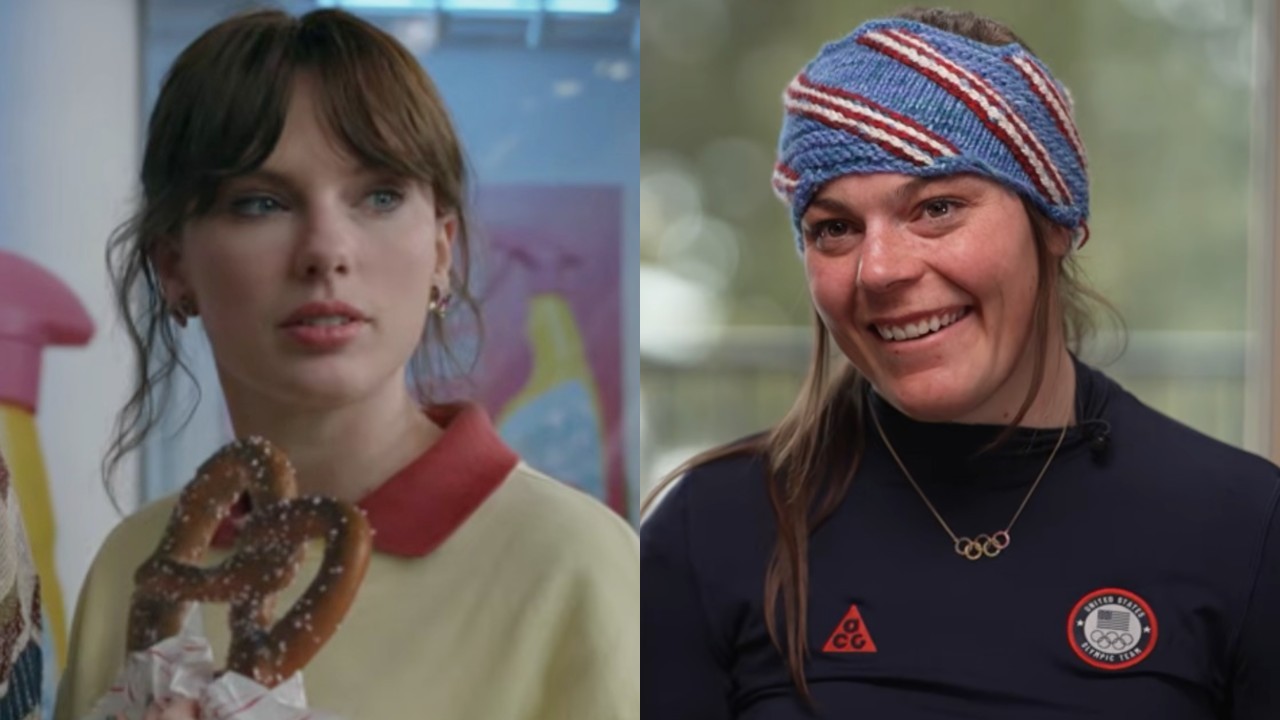Parasite: 13 Behind-The-Scenes Facts You Might Not Know
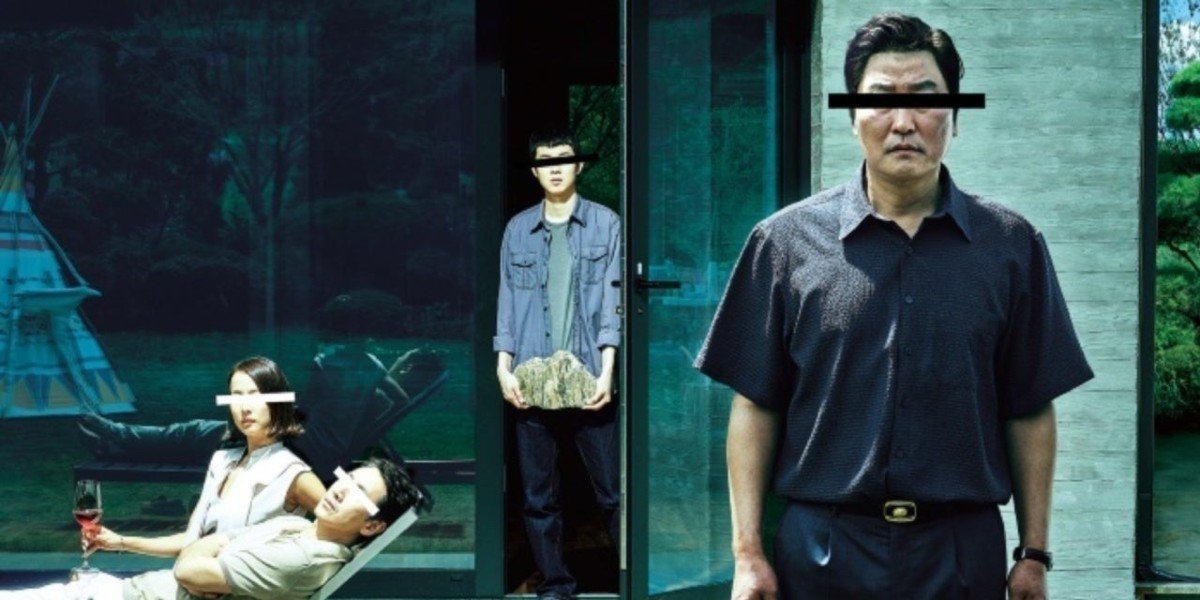
Your Daily Blend of Entertainment News
You are now subscribed
Your newsletter sign-up was successful
Even in a career full of highlights, notably including Memories of Murder, The Host (2007), Snowpiercer, and Okja, Parasite exceeded all expectations to become one of the triumphant movies in recent history — if not all-time. The winner of the Palme d'Or at the Cannes Film Festival, Best Picture at the Oscars, and at the top of several critics "best of the year" lists, Parasite is an incredible achievement, to put it mildly, which firmly cemented Joon-ho's status as a prestige filmmaker on a world-scale. Now that Parasite continues finding its audience in homes everywhere, many folks will wonder how this movie got made, and what it took to make such a great, seminal work of art.
Certainly, Parasite isn't made overnight. It takes a lot of talented people, as well as a strong vision, to pull it off. If you loved this Oscar-winning film, here are some noteworthy behind-the-scenes facts about Parasite.
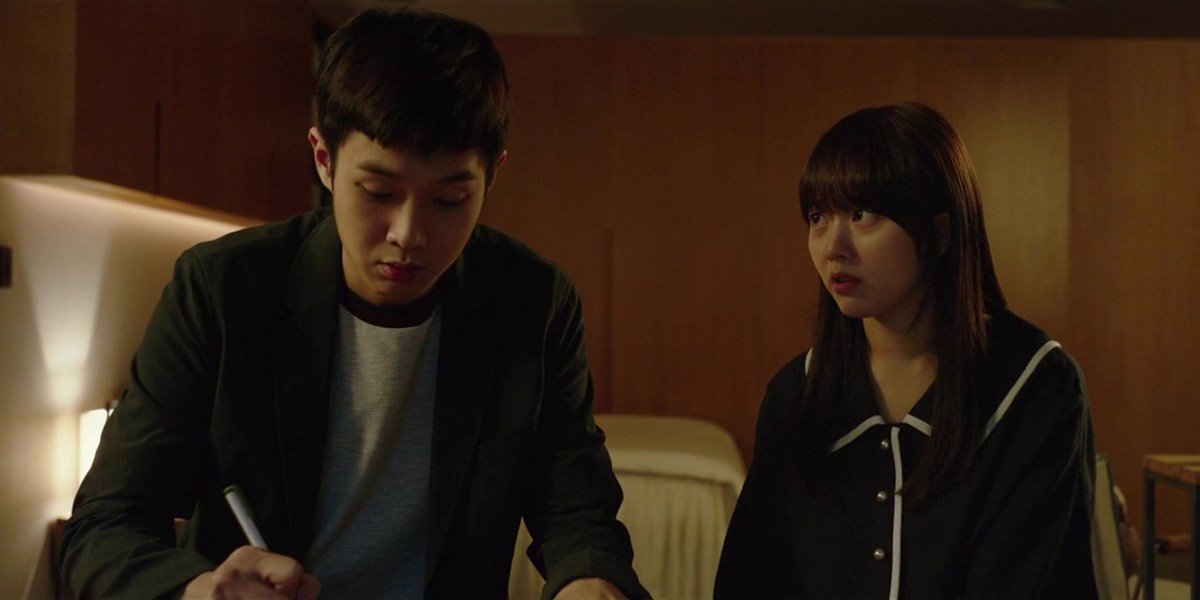
Parasite Was Originally Conceived As A Play
While Bong Joon-ho is an exceptionally visual filmmaker, storyboarding his films intensely before it comes time to shoot the picture, Parasite initially wasn't conceived as a movie, believe it or not. Surprisingly enough, the writer/director's original plans for the story were to turn it into a play, bouncing back and forth between the Kim apartment and the Parks household. The story came to mind in 2013, around the time Joon-ho finished Snowpiercer. He was encouraged by a theater actor friend to write up a play, which later inspired Joon-ho to reflect back on his time tutoring for the son of a wealthy family in Seoul in his early 20s before he came into his own as a filmmaker.
The director first considered turning this experience into a play production, as THR reported. Eventually, however, it became the catalyst for the newest film in his continuously-impressive filmography.
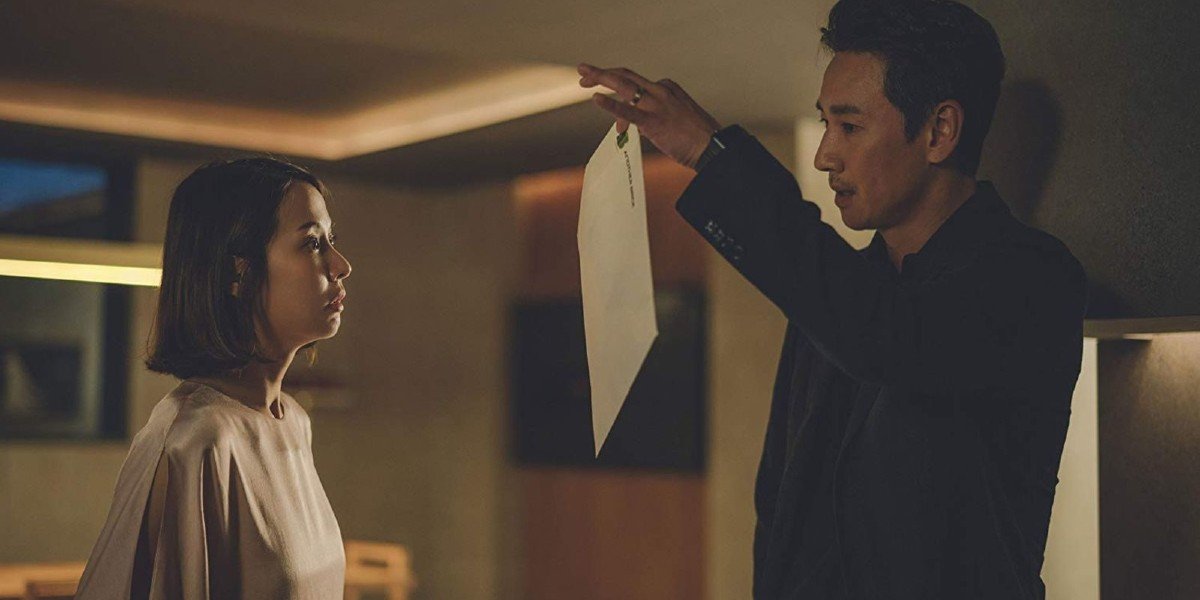
Bong Joon-ho Claims The Second Half Of Parasite Came ‘Like A Hurricane’
The writing process comes differently for everyone. Hell, it even comes differently for each individual project. Some movies are written like lightning, shooting out of the screenwriter's fingers as if the devil is after them. Other times, it takes years, even decades, for the movie to come alive on the page — and that's before it goes through extensive rewrites, new drafts, etc.
When it comes to screenwriter/director Bong Joon-ho putting his ideas for Parasite onto paper, the process came with great difficulty at first, as he was having trouble contextualizing the overarching story. But when the story's midway twist came to mind, Joon-ho told The Atlantic that the screenwriting process came "like a hurricane." Joon-ho also told Dazed Digital that four years to concoct Parasite's concept, but it took only four months to write-up alongside co-writer Han Jin-won.
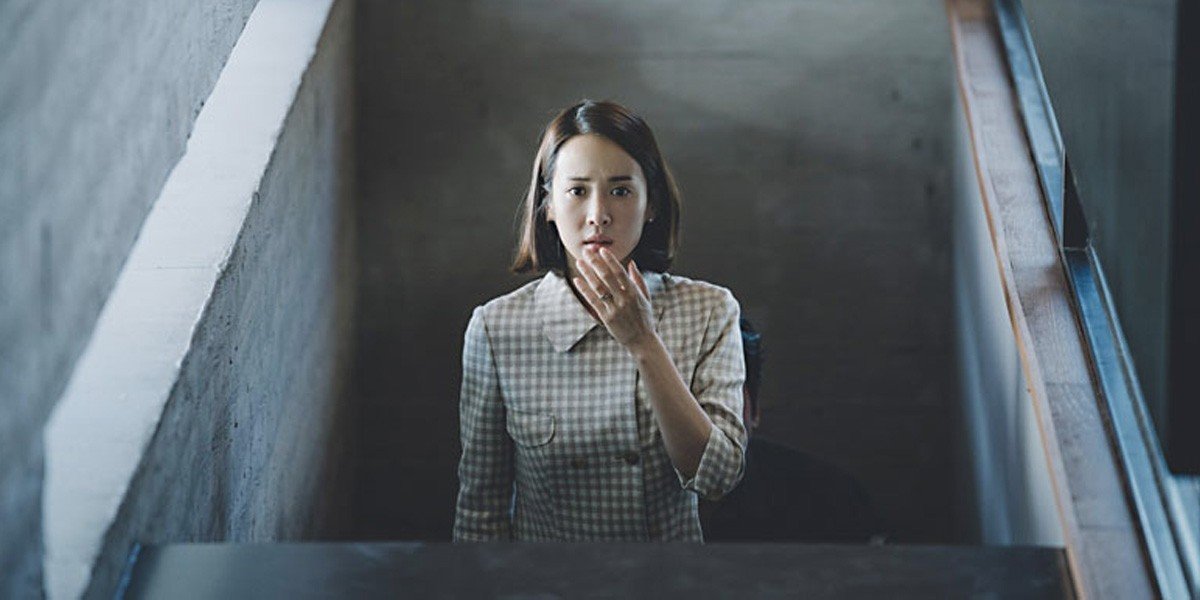
The House Sauna Has Personal Significance To Bong Joon-ho
As noted before, Parasite is inspired by Bong Joon-ho's early experiences, particularly as a young, lower-class man who found himself in the midst of a wealthy family's luxurious lifestyle through his brief tenure as a tutor. And the sight of a house sauna holds personal significance to Joon-ho's early life. As he noted to Vanity Fair, seeing a house sauna for the first time in such a lavish home was a monumental moment, and it's something that he has since associated with enormous wealth. He made a point to include a sauna in the Park home to showcase just how wealthy this very rich family was.
Your Daily Blend of Entertainment News
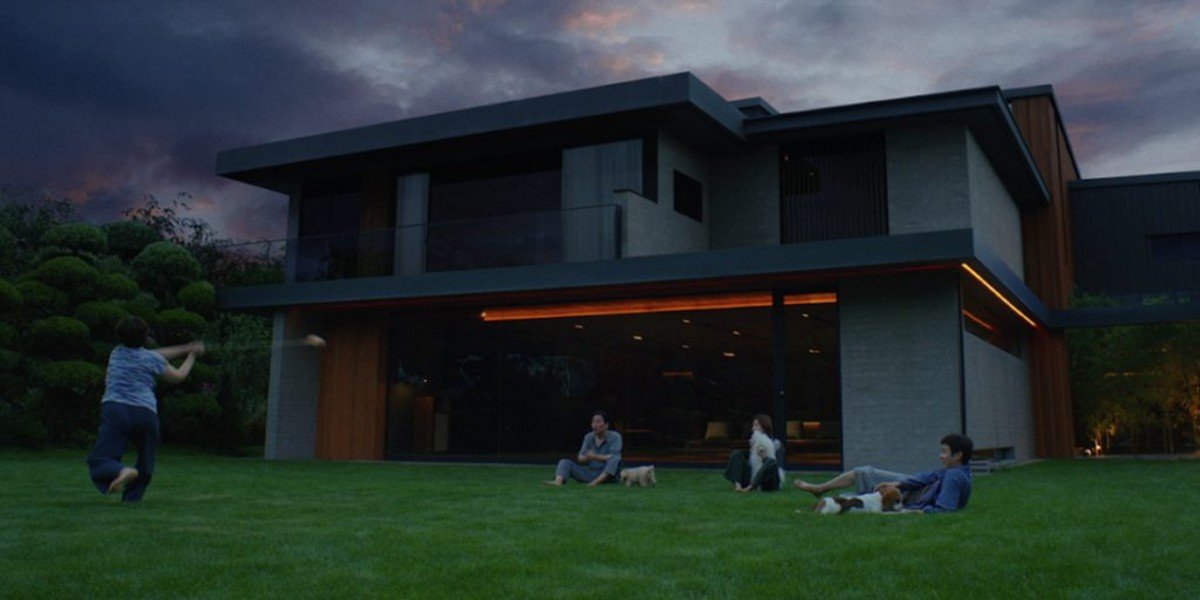
Parasite Has 480 Visual Effects, But Most Of Them Are ‘Invisible’
Especially compared to Snowpiercer and Okja, Bong Joon-ho's previous two films, as well as 2007's The Host, Parasite doesn't look like an especially VFX-heavy movie. But looks can be deceiving. Indeed, while the movie is notably smaller-in-scale compared to the big budgets of his last two movies, Parasite contains nearly 480 visual effects shots — most of which, surprisingly enough, come from the luxurious house. As Vulture reported, the first floor and its private front yard were built on an empty outdoor lot, and they placed a green screen on top, which is where they inserted the second floor. The various other floors, meanwhile, were added separately.
According to Bong Joon-ho, if the structure of the house "isn't correct, the story doesn't work," so special effects wizardry was needed to realize it. But nearly all of these special effects are "invisible."
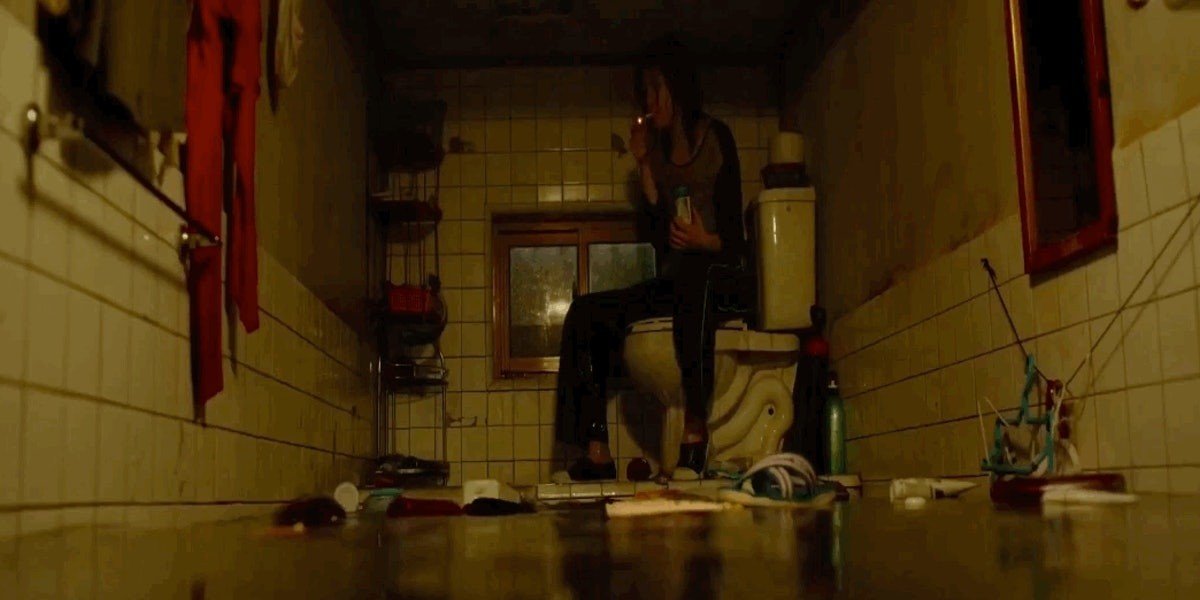
The Apartments Were Built In A Water Tank
A little more-than-midway through Parasite, the Kim family finds themselves at one of their most desperate moments when, after escaping the Parks family's notice upon their early return, they come back to their modest apartment and discover that the whole complex has been flooded. In order to realize this moment in the film, Bong Joon-ho and his team decided to build the apartments inside a giant water tank, thus making it easy for them to flood the whole neighborhood when it came time to do so in the film. The scene happened on the last day of shooting, according to Joon-ho, and they "poured in sewage water" to realize this devastating moment for the Kim family.
Though he described it as such, Bong Joon-ho wasn't being literal when he said "sewage water." He apparently used "mud face masks" instead. Still, talk about world-building!
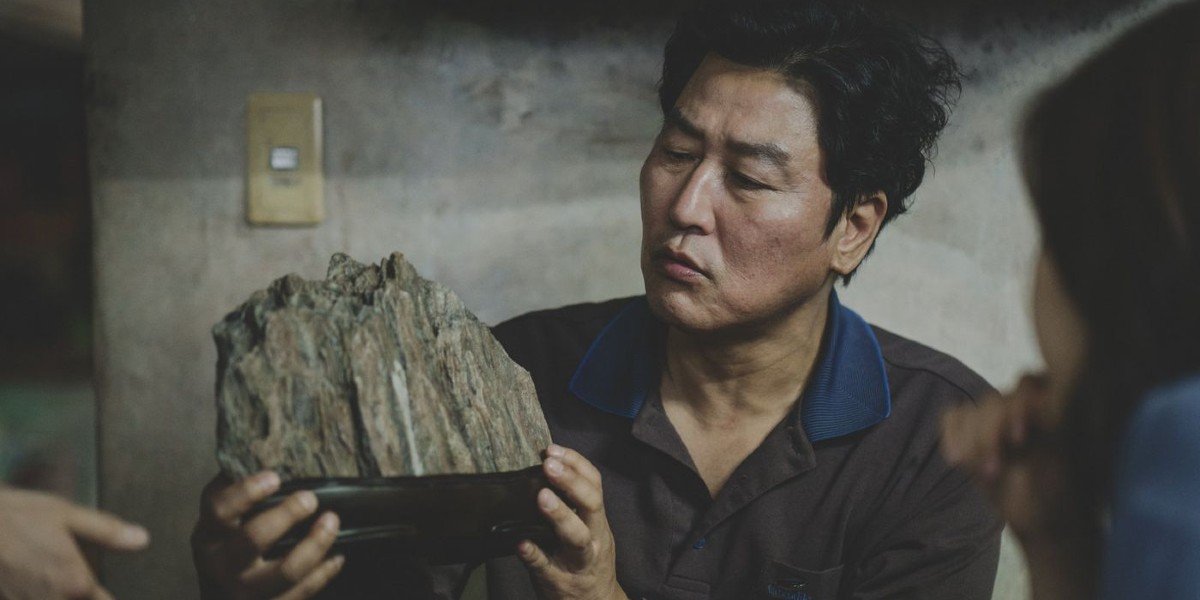
The Movie’s Fixation On Rocks Came From Bong Joon-ho’s Father
"It's all so ... metaphorical!"
Certainly, rocks play a big role in Bong Joon-ho's Oscar-winning film, and the characters are even upfront about its symbolism. But what inspired the director to incorporate so many stones in the film in the first place? As it turns out, Parasite's fixation on rocks came from the director's own father's fascination with collecting these heavy formations. As Joon-ho noted in a Dazed Digital interview, while this rock-collecting hobby seemingly fell out-of-practice starting with his own generation, this tradition of finding, then collecting these stones stuck with the filmmaker. He felt that rocks carry "this uncanny sense of being able to transform into various things." He notes they can "at once" be "a weapon" and "a beautiful decoration." In that sense, Joon-ho notes that Parasite is, in many ways,"about transformation." Indeed, "so metaphorical!"
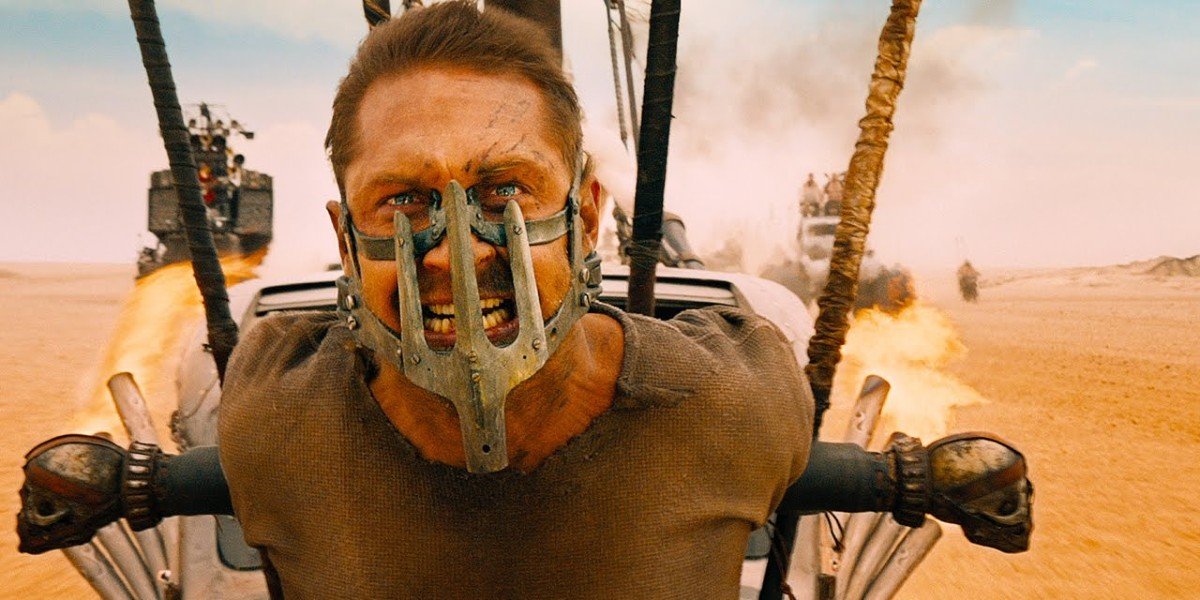
Mad Max: Fury Road Inspired Parasite In A Fun Way
It's hard to think of too many modern films more exhilarating than George Miller's extraordinary Mad Max: Fury Road. The exquisitely-crafted action movie spectacle is a sheer rush, never relenting or stopping itself in the midst of his hyper-active storytelling wizardry. It's a glorious cinematic achievement, inspiring many filmmakers to step up their game to try to produce something equally as thrilling. While it's hard to imagine too many other movies rising to Fury Road's action-packed level, it's easy to see how this blockbuster's constant adrenaline informed Parasite's exceptional pacing.
During Parasite's press rounds, Bong Joon-ho claimed Fury Road was "quite inspirational." He felt a huge emotional connection to it, and he was extremely inspired by how the background information appears naturally, the camera never stops moving, and the information is explained through action. He used this inspiration while making Parasite.
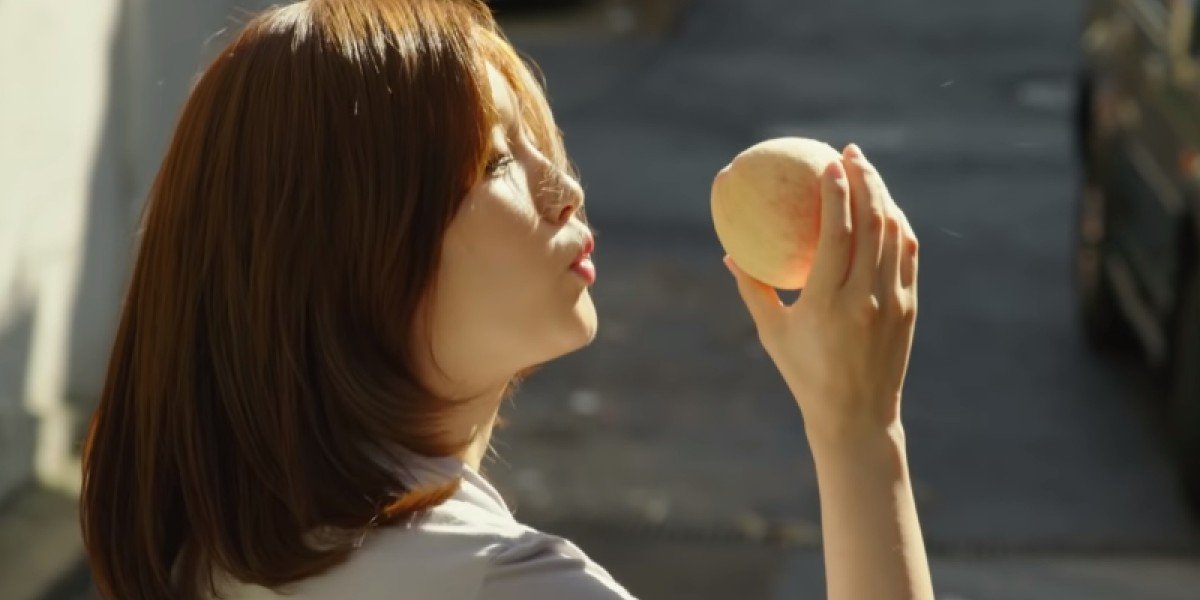
Moon-gwang's Peach Allergy Was Inspired by Bong Joon-ho’s Friend
One of Parasite's most darkly amusing moments is how the Kim family attempts to weaponize Moon-gwang's severe peach allergy to their fight-or-flight survival. It's a quirky-but-distinctive inclusion that makes you wonder where the heck Bong Joon-ho came up with the idea in the first place. As it turns out, Joon-ho's inspiration came from a college friend who was also allergic to peaches.
As Bong Joon-ho recounted, the future filmmaker and his friends thought the guy was joking about this allergy, so someone decided to throw a peach his way. But he wasn't kidding, it turns out, and "his entire body turned red." It was all "very shocking," and obviously, Joon-ho and his pals "felt very bad" about it. But, as Joon-ho was quick to admit, he wasn't the one who hurtled the fruit his way.
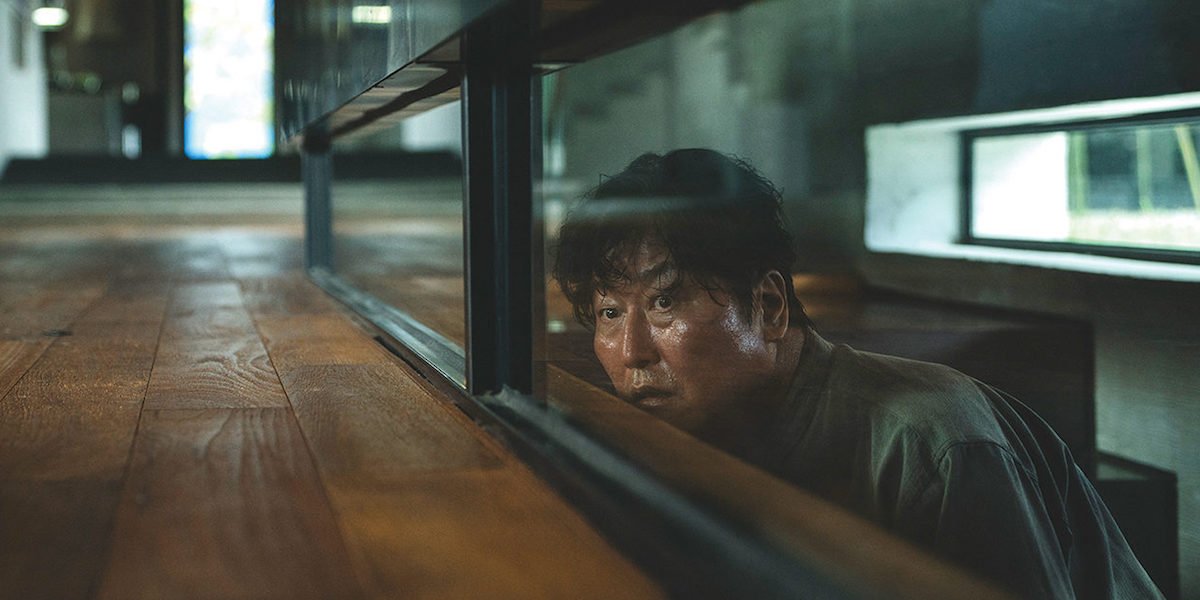
One Continuity Error Was Left In Parasite On Purpose By The Editor
Especially in a time where seemingly any pesky CinemaSins-esque personality waits to pick apart any conceivable loose/unknitted plot thread, glaring plot hole, or narrative inconsistency, you'd think that editors (and writers/directors/script supervisors, etc.) would do everything in their power to make their plots as air-tight as possible. But if you noticed one particular continuity error in Parasite, it wasn't a mistake. Or, at least, it wasn't left in the movie unintentionally.
As editor Yang Jin-mo noted in an interview, there's a moment where Ki-jung eats jerky, only to freeze when she realizes it's for the puppy. From there, we go to a wide shot of the family when you hear the doorbell. There's a small continuity error where she goes from eating it in her left hand to her right. According to Yang, this mistake wasn't left in accidentally. They left it in there for the fans to spot.
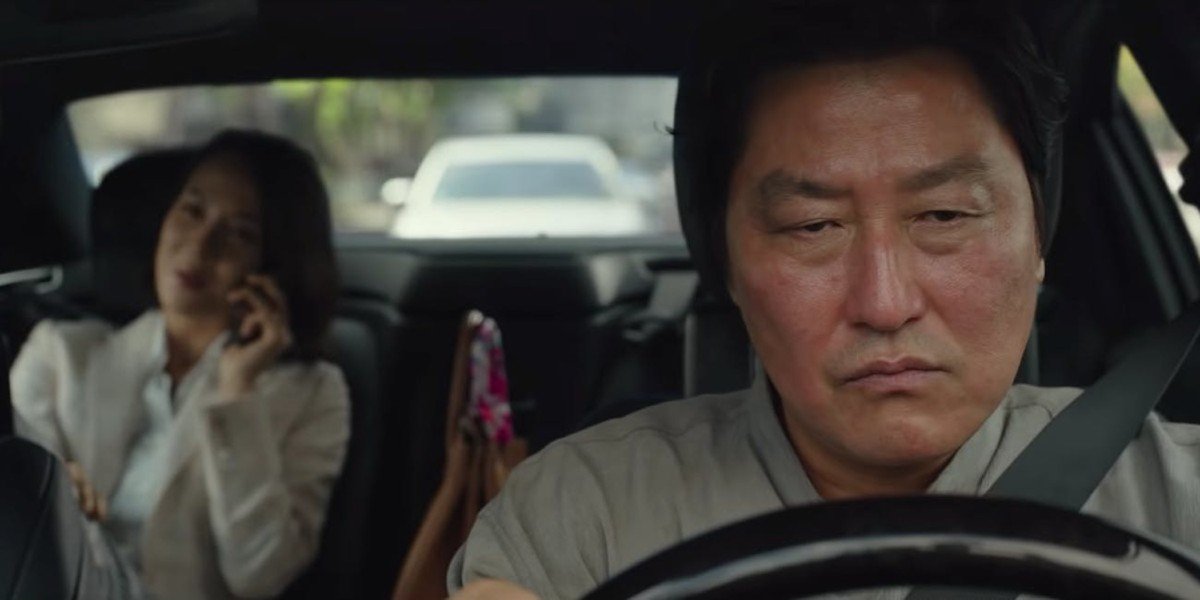
Even With Parasite’s Incredible Success, Bong Joon-ho Isn't Completely Happy With The Final Film
Sometimes, a filmmaker is their own worst critic. One would be extremely hard-pressed to call Parasite any sort of failure. It won the Palme d'Or at last year's Cannes Film Festival. It grossed $264.4 million at the box office. It was hailed by many movie-lovers, critics or otherwise, as the year's best film. And the Academy Awards recognized it as such when it became the first non-English language film to win Best Picture, while also winning three more Oscars for Best Picture, Best Original Screenplay, and Best International Feature Film. Suffice to say, Parasite is a hit! And yet, Joon-ho has criticisms.
In an interview with Polygon, the Oscar-winning filmmaker admits that he has his reservations about his well-acclaimed film, claiming that he'll rewatch it and notice little things that don't work for him. His words:
I’m very cruel to my own films. Even with Parasite, I watched it again the other day, and kept thinking, ‘Why did I do that that way?’ I keep discovering new things wrong with it. I think all directors do that. But once it’s done, it’s done. It’s not like I’m going to roll out a new version every year.
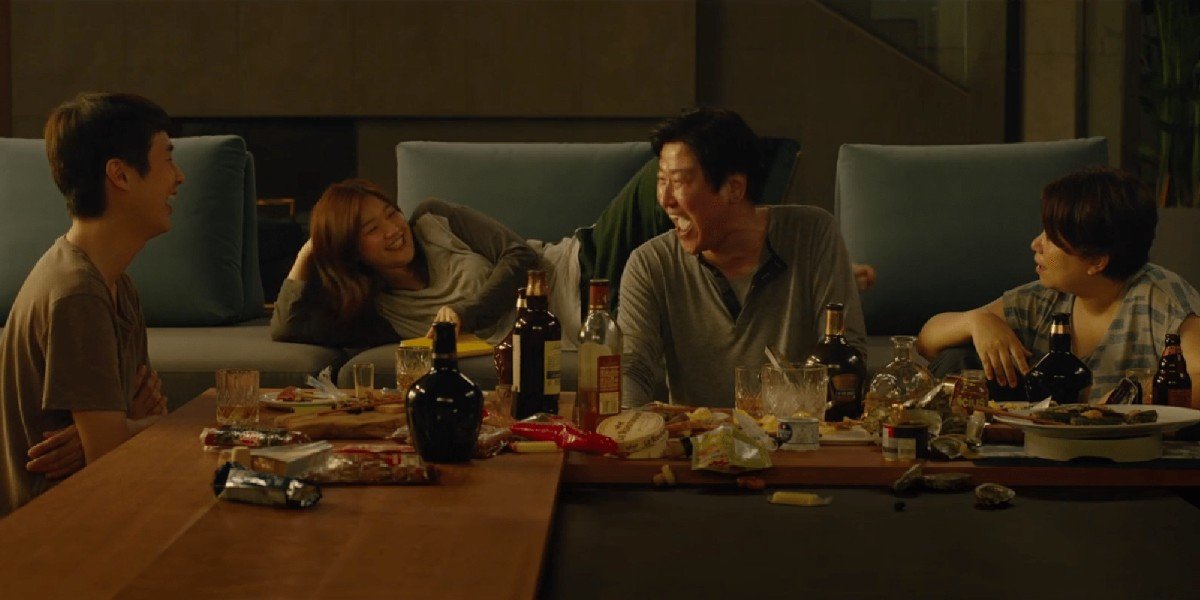
Bong Joon-ho’s Palme d’Or Speech At Cannes Was Famously Very Short Because He And The Cast Were Really Hungry
When Parasite made its world premiere at the Cannes Film Festival, it'd be an understatement to say it was well-received. The movie earned an eight-minute applause when it won the coveted Palme d'Or, becoming the first South Korean film to win this prize and, later, the first film to receive both the Palme d'Or and Best Picture at the Oscars. Following this lavish response, you'd think Bong Joon-ho would be overflowing with words to express to the rapturous crowd. But his own rapturous hunger got the better of him. His speech was simply the following: "Thank you. Let's all go home."
As Bong Joon-ho explained on The Tonight Show Starring Jimmy Fallon, he and his cast were so hungry, they didn't want to wait any longer. So, Joon-ho kept this speech brief.
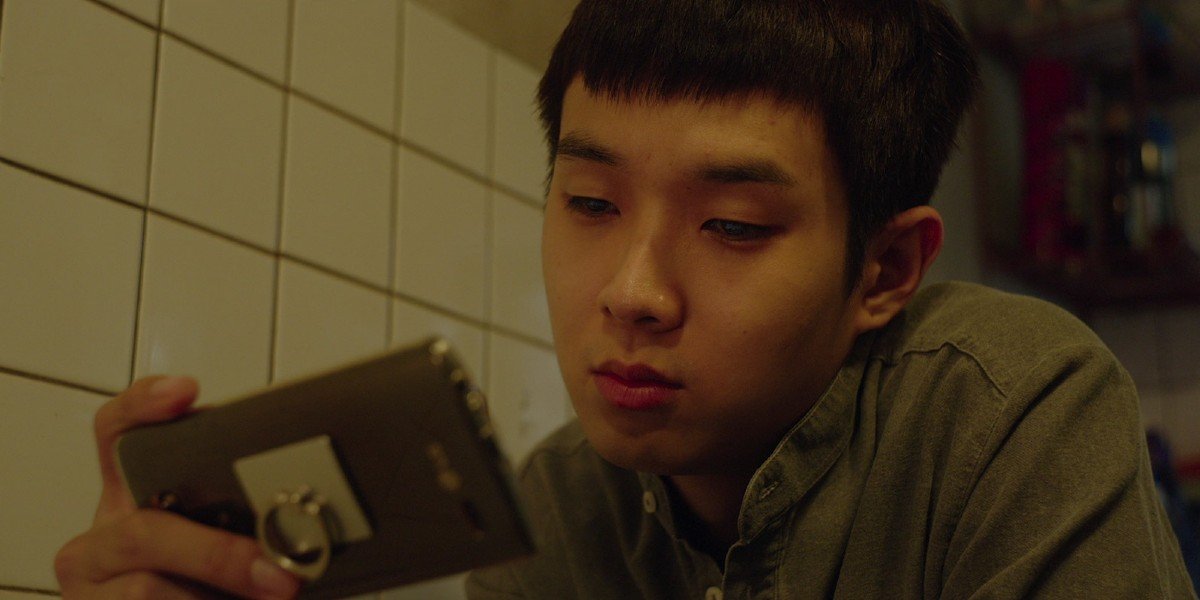
Bong Joon-ho Wrote The Lyrics To The Song Choi Woo-shik Sings At The End Of Parasite
In addition to his screenwriting, directing, and producing credits on Parasite, Bong Joon-ho added another contribution to his latest film. According to Time, he apparently wrote the lyrics to "A Glass of Soju," i.e. the song Choi Woo-shik sings near Parasite's end. While the Oscar-winning filmmaker isn't as well-known as a musician, perhaps this brief foray might inspire the director to write more tunes for his much-anticipated follow-up films.
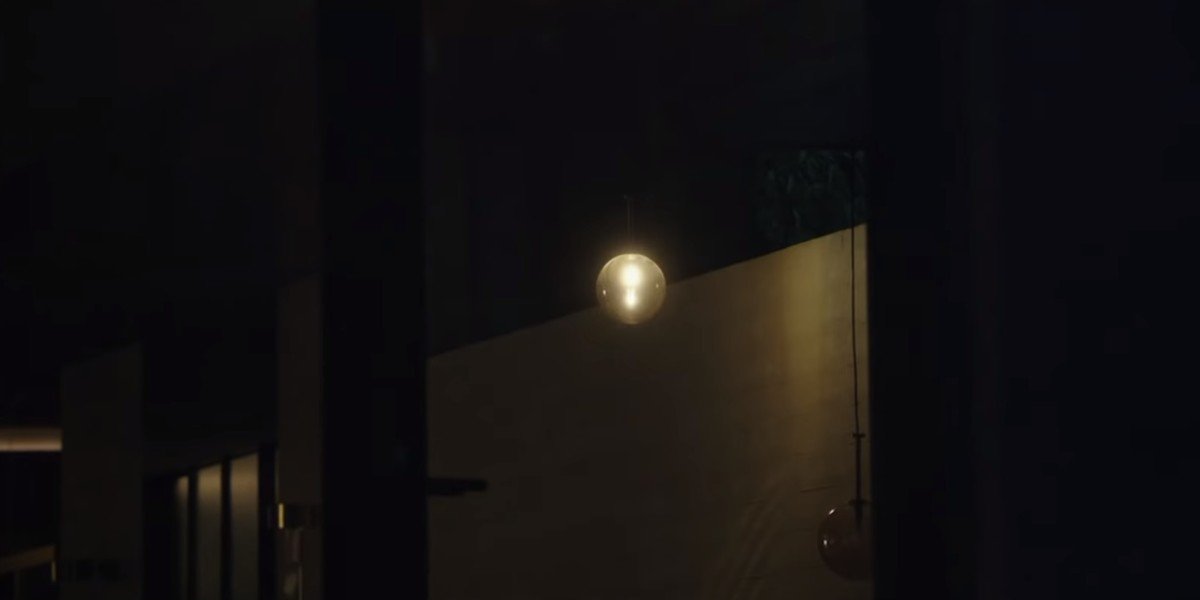
Bong Joon-ho Claims It Would Take 540 Years For Kim Ki-woo To Buy The Home Based On His Salary
While Parasite ends on a bittersweet note, the sad reality is that it would take Kim Ki-woo many, many lifetimes to buy the home based on his salary. Specifically, Bong Joon-ho calculated that it would take 540 years to pull it off (via Idolator).
Did you love Bong Joon-ho's Parasite? Let us know below!
Will is an entertainment writer based in Pittsburgh, PA. His writing can also be found in The Playlist, Cut Print Film, We Got This Covered, The Young Folks, Slate and other outlets. He also co-hosts the weekly film/TV podcast Cinemaholics with Jon Negroni and he likes to think he's a professional Garfield enthusiast.

